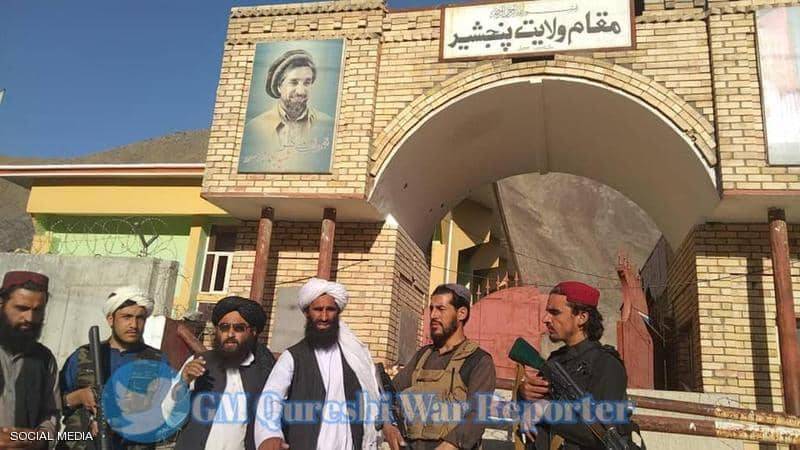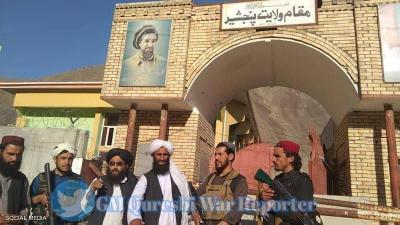On Monday, Taliban spokesman Zabihullah Mujahid announced that the movement had completely taken control of Panjshir Province, north of the Afghan capital Kabul, following battles with the "National Resistance Front" led by Ahmad Masoud. Pictures on social media showed Taliban members standing in front of the gate of the Panjshir provincial governor's complex.
Earlier, the "National Resistance Front" stated in a statement late Sunday into Monday that it had "proposed to the Taliban to halt their military operations in Panjshir and withdraw their forces, in return we will ask our forces to refrain from any military action." They added that their spokesman Fahim Dashti and General Abdul Wadood were killed in the recent fighting.
For his part, the leader of the "Afghan National Resistance Front" based in Panjshir, Ahmad Masoud, welcomed proposals from the Council of Scholars to negotiate a settlement to stop the fighting. Masoud announced this on the Front's Facebook page: "The Afghan National Resistance Front agrees in principle to solve the current problems and end the fighting immediately and continue negotiations." He added, "In order to achieve lasting peace, the Front is ready to stop fighting on the condition that the Taliban also cease their attacks and military movements in Panjshir and Andarab," referring to a neighboring area in Baghlan Province.
Panjshir Valley, surrounded by rugged snowy peaks, provides a natural defensive advantage, allowing fighters to conceal themselves from advancing forces and later launch ambushes from the heights toward the valley. The long and deep Panjshir Valley stretches approximately 120 km from southwest to northeast of Kabul, protected by high mountain peaks reaching up to 3000 meters. These mountains serve as natural barriers that defend the province against external attacks, making it a heavily fortified military bastion with access to food and water, as there are 126 large valleys and dozens of smaller ones that make it capable of withstanding a prolonged siege.
One of the strategic importance of the province is its connection to seven Afghan provinces: Takhar and Baghlan to the north, Kapisa to the south, Nuristan and Badakhshan to the east and northeast, Laghman to the southeast, and Parwan to the west of Panjshir, posing a threat to the Taliban if the valley remains outside their control.
Ethnic conflict underlies the strong animosity between the predominantly Tajik population of the region and the Taliban, which mainly comprises Pashtuns, along with old wounds represented by accusations against the Taliban for the assassination of two Tajik leaders, Burhanuddin Rabbani and Ahmad Shah Masoud. Conversely, the region supported the U.S. invasion against the Taliban in 2001. Before the Taliban's control over Kabul, it is believed that the province had become a refuge for a large stockpile of weapons.




